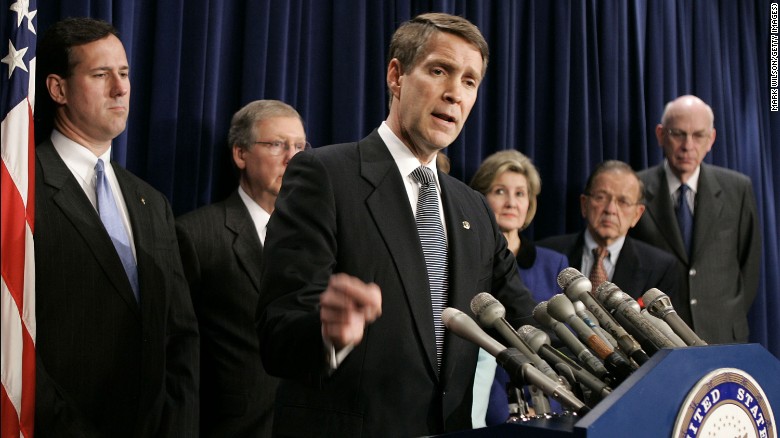And how to unlock ourselves.
An Early Legacy of Brexit

To leave the EU was to return to politics.
Brexit has been a divisive process for us all. As a mononym, if I say so myself, it was always a particularly cheap and badly chosen one. But it has succeeded where general elections had failed, releasing a pressure valve—for those disparaged and neglected in the downward spiral of British culture and politics ushered on by Tony Blair.
Brexit also reasserted England’s venerable tradition of common law and responsible, consensual government, over and against the unaccountable, undemocratic, and unelected quasi-tyranny of Eurofederalism.
A Contrast in Regimes
The Magna Carta was signed 805 years ago, setting the foundations for the Mother of Parliaments and accountable governance; no state on the continent would replicate anything like it for many years. The European Commission are not elected. They have no public reputation in Britain, as politicians should when the prospect of the vote looms. And they govern us. Whilst elections for members of the European Parliament do take place, they have exceedingly low U.K. turnouts—before and after 2016—ranging between 30% and 40% ever since the first European election in 1979.
And then there’s the money. The E.U. has extravagant reserves of coin for the luxurious conditions in its parliament. As Conservative MEP (Member of the European Parliament) Daniel Hannan writes in Why Vote Leave:
When MEPs travel from their constituencies to one of the two parliamentary locations (the European Parliament meets, at vast expense, in both Brussels and Strasbourg), they are reimbursed on the basis of the priciest notional fare, plus an extra ‘time and distance allowance’. Even if you really did travel at the top business class fare, you would make a tidy sum. But if you were prepared to fly EasyJet, you could trouser the better part of £800 a week—tax-free, because it counts as expenses rather than income.
On top of that, Britain’s contribution to the E.U. has outstripped the E.U. expenditure granted to the U.K. in a vast majority of the years of the U.K.’s membership, coming to a 40% net loss in 2014.
But all these reasons to Leave, no matter how eloquently articulated, often fell on deaf Remain ears. Superficially, it seemed the case for Remain was predominantly to avoid turbulent change (with which many can sympathise) as well as a loss of funding to allegedly important programmes, such as scientific research.
For most E.U.-funded services in the U.K., there was almost always available evidence of E.U. funding explicitly targeted at particularly influential and desirable entities, such as U.K. universities and scientific research initiatives, in order for E.U. rule to justify itself. Everybody loves what popular scientists have to say, right?
On top of this, the U.K. government was allowed to take an official Remain position, resulting in a government-powered marketing campaign. Leaflets in the post, advertisements on television and YouTube, promising cheaper phone calls when on holiday in Greece should we remain. This might have backfired, however: the British public’s sensitivity to deception and bribery is quite apparent.
And just these were meant to make up for the lack of arguments concerning Eurofederalism itself. Either out of ignorance, or out of hesitation to confront harsh realities (with which, again, I sympathise), almost no attention was paid by Remainers to the havoc E.U. rule wreaked on our constitutional integrity.
Instead, Remain relied on performative sanctimony: rejecting “xenophobia” and “racism” and suchlike. Certainly, the case to leave would have to be made to some extent along “Anglocentric” lines. But it is a case that has been made in equal measure by England’s fringe Right and Left since 1975 (The U.K.’s first ‘European Community’ membership referendum). The most prominent of the various official Communist Parties in Britain have maintained their Eurosceptic position since then. And as for “racism” pertaining to non-European ethnic origins, well, it has been well noted that U.K. seats in the E.U. parliament account for a dominant proportion of the parliament’s non-white representation.
The virtue signalling was most egregious in one of the E.U.’s major targets for funding: the campus. This was particularly apparent among my art student friends at university. One could easily assume that everyone in my vicinity was in favour of Remain or, at the very least, Remain until proven otherwise. No one with even mild Leave-adjacent sentiments dared speak unless the subject was nervously broken and an opinion forced from them.
Outside of the campus, the other hostile environment for open Leave sentiment was—simply put—London. This issue over Europe has most certainly made the phenomenon of the condescending, elitist and self-indulgent London Bubble the most pronounced it has ever been in modern times.
Londoners are a “type,” easily spotted when you know what you’re looking for. A great majority of them also live in circumstances where a large proportion of income goes to rent, likely causing them to develop leftist convictions about the evil of private property and landlordry, cultivating greater sympathy for state and welfare programme expansions, more than any kind of explicit affirmation of Eurofederalism.
Corona and Brexit
As of January 31 we—at long last—have shaken off our E.U. membership shackles. We have left! But this is not the absolute end of our withdrawal process and, alas, the coronavirus pandemic has sent us somewhat into disarray.
The progression of U.K. coronavirus deaths went from one on March 11 (the U.K. Government’s Budget Day and the start of the U.K. fiscal year) to over 6,000 less than a month later. Prime Minister Boris Johnson himself sadly underwent a trip intensive care, his condition likely exacerbated by working long hours and a lack of sleep.
The most pressing current issue is the December 31 date set for withdrawal from the single market and customs union, entities which stifle U.K. trade outside of Europe (given the E.U.’s hypocrisy in denouncing internal protectionism in Europe but implementing it against the rest of the world) and our right to ultimate self-determination of our own trade policy.
The December 31 date is set in law. But one should not expect the E.U. to have much respect for that, given the respect they seem to lack for their own laws. As a prominent example, the various Eurozone bailouts in 2010 were not strictly legal in accordance with the E.U.’s own Maastricht Treaty from 1992. Such flippancy is argued as a common consequence in the sociology of politics in a system of civil law (most apparent in continental Europe) by contrast with the system of English common law. But I digress.
An extension to the deadline is being discouraged (if not outright rejected) by the U.K. government. This must be a result in part of pressure to implement the E.U. withdrawals that the Conservatives have faced since the December election victory.
And they are right to feel the pressure. All manner of Europhiles, on both sides of the Channel, are calling for extension in the name of pragmatism. I myself doubt that pragmatism is the only motivation. Large-scale crises have, throughout history, always been used as an excuse for the eroding of civil liberties, state expansions, increases in taxation and spending. The claim is the common euphemism of “economic uncertainty” with regard to refusing an extension. It should not be bought, given how rare the phenomenon of “economic certainty” is in extraordinary circumstances like these in the first place.
In conclusion, it is frankly ridiculous that another circumstance has cropped up to induce more delay to our withdrawal from the European Union, nearly four years on from June 2016. Whilst these current circumstances are much less due to the ineptitudes of our elected representatives—as others most certainly have been previously—it is grating to see it happen, as if there is some curse on us all to be chained to Eurofederalism forever.
But there exists one inescapable fact that is not easily undermined: we have left. The English spirit is not likely to be so tolerant of overturning this fact, regardless of any “pragmatism” in an extraordinary pandemic. There is evidence to suggest that Boris Johnson knows and respects this full well, and we can only hope that his and his party’s principled determination can persevere in all such trying times as these in order for Britain to ultimately find herself as a free, independent, and sovereign nation of the world.
No consequence is going to be instantaneous, good or bad. Leaving implies no explicit agenda for the running of the country—except that agenda upon which the people of Britain, and not our unelected bureaucrats, agree. Thank God, and God save the queen.
The American Mind presents a range of perspectives. Views are writers’ own and do not necessarily represent those of The Claremont Institute.
The American Mind is a publication of the Claremont Institute, a non-profit 501(c)(3) organization, dedicated to restoring the principles of the American Founding to their rightful, preeminent authority in our national life. Interested in supporting our work? Gifts to the Claremont Institute are tax-deductible.
The choice of what to let go is no longer yours.
Senator Bill Frist saw it coming years ago.
It’s Coming.
The American people deserve honesty about who is at fault for the virus disaster.
The coming great awakening.






